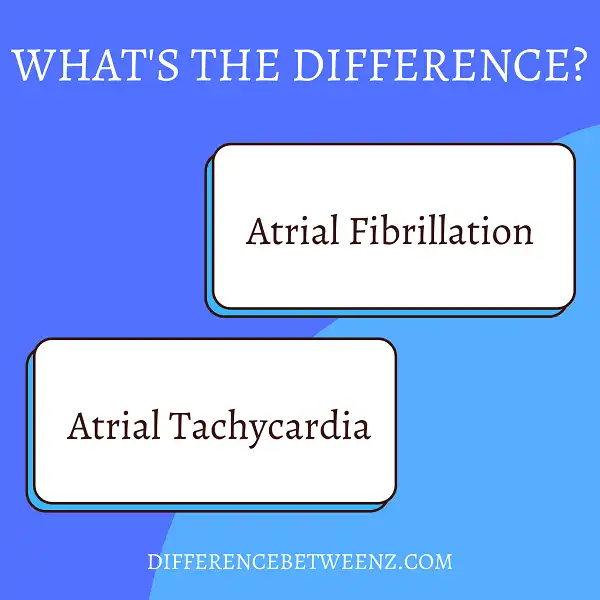Atrial fibrillation and atrial tachycardia are two heart conditions that can cause an irregular heartbeat. They both involve problems with the upper chambers of the heart, but they have different causes and treatments. Knowing the difference between atrial fibrillation and atrial tachycardia is important for understanding your health and getting the right treatment.
What is Atrial Fibrillation?
Atrial Fibrillation (Afib) is a heart condition that causes the upper chambers of the heart (the atria) to beat erratically. This can cause the heart to pump less effectively and may lead to blood clots, stroke, and other serious health problems.
Although Afib can occur in people of any age, it is most common in older adults. There are many different factors that may contribute to the development of Afib, including high blood pressure, heart disease, diabetes, and sleep apnea.
Treatment for Afib often includes medications to control heart rate and blood pressure, as well as anticoagulants to reduce the risk of stroke. In some cases, surgery may be necessary to repair damage to the heart or to correct an underlying condition. With proper treatment, many people with Afib are able to live long and healthy lives.
What is Atrial Tachycardia?
Atrial Tachycardia is a condition in which the heart rate is abnormally high. This can be caused by a number of factors, including heart disease, stress, and medications. Atrial Tachycardia can be dangerous if it is not treated promptly, as it can lead to stroke or other complications. However, treatment for Atrial Tachycardia is typically very effective. In most cases, the condition can be managed with medication and lifestyle changes. If Atrial Tachycardia is left untreated, it can lead to serious health complications. Therefore, it is important to seek medical attention if you think you may have this condition.
Difference between Atrial Fibrillation and Atrial Tachycardia
Atrial fibrillation and atrial tachycardia are two types of heart rhythm disorders. Atrial fibrillation is characterized by an irregular and often fast heart rate, while atrial tachycardia is characterized by a rapid heart rate that is usually regular. Both conditions can cause symptoms such as palpitations, shortness of breath, and dizziness. While atrial fibrillation is more common in older adults, atrial tachycardia can occur at any age. Treatment for both conditions typically includes lifestyle changes and medication to control the heart rate. In some cases, electrical cardioversion or ablation may be necessary to restore a normal heart rhythm.
Conclusion
Atrial fibrillation and atrial tachycardia are two heart conditions that can cause a rapid heartbeat. They are both serious conditions, but they have different causes and treatments. If you think you might have one of these conditions, it is important to see a doctor right away.


